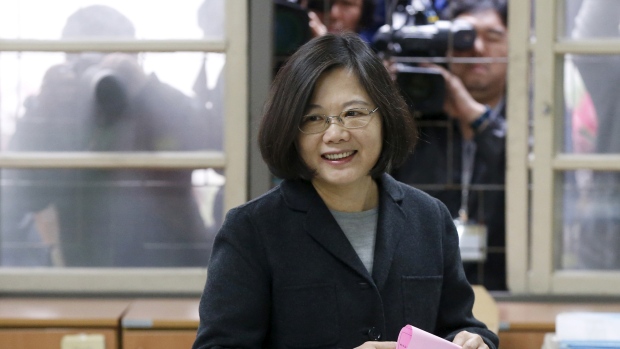-
Tips for becoming a good boxer - November 6, 2020
-
7 expert tips for making your hens night a memorable one - November 6, 2020
-
5 reasons to host your Christmas party on a cruise boat - November 6, 2020
-
What to do when you’re charged with a crime - November 6, 2020
-
Should you get one or multiple dogs? Here’s all you need to know - November 3, 2020
-
A Guide: How to Build Your Very Own Magic Mirror - February 14, 2019
-
Our Top Inspirational Baseball Stars - November 24, 2018
-
Five Tech Tools That Will Help You Turn Your Blog into a Business - November 24, 2018
-
How to Indulge on Vacation without Expanding Your Waist - November 9, 2018
-
5 Strategies for Businesses to Appeal to Today’s Increasingly Mobile-Crazed Customers - November 9, 2018
DPP’s Tsai Ing-wen Is Taiwan’s Next President
Tsai Ing-wen defeated Eric Chu, the Nationalist Party’s Presidential candidate for in Taiwan’s presidential election on January 16, 2016.
Advertisement
Tsai Ing-wen and her Democratic Progressive Party (DPP) won a convincing victory in both presidential and parliamentary elections on Saturday, in what could usher in a new round of instability with China, which claims self-ruled Taiwan as its own.
“I will rebuild the people’s trust in government and create a stable foundation for Taiwan’s future development”, she said at a news conference following the concession of her opponent, Eric Chu of the ruling Nationalist Party, or Kuomintang (KMT).
The result should be unsettling to China, which may respond by reducing Taipei’s ability to win diplomatic allies and participation in global organizations.
Shortly after her victory, China’s Taiwan Affairs Office warned it would oppose any move towards independence and that Beijing was determined to defend the country’s sovereignty and territorial integrity.
Four years ago, she was undercut by criticism from KMT and United States officials that her election would raise tensions with China, which considers Taiwan a part of its territory.
Dr Tsai was elected DPP chairwoman in what was seen as a caretaker role, but she soon proved her abilities, clearing the party’s debt and organising candidates for by-elections and local races. She too pledged to maintain the status quo with China.
In her remarks Saturday, she referred to Taiwan by its formal name, the Republic of China.
Beijing has warned repeatedly in the run-up to the elections that hard-earned peace across the Taiwan Strait could be affected by a Tsai win.
Tsai now finds herself in one of Asia’s most delicate and challenging positions, balancing the democratic will of the Taiwanese people and the aspirations of mainland China, which makes no secret of its desire to absorb Taiwan.
The Taiwan question falls in China’s internal affairs, said Hong.
“Our democratic system, national identity and global space must be respected”.
After decades of enmity, current KMT president Ma Ying-jeou has overseen a dramatic rapprochement with China since coming to power in 2008.
The stakes are high, with hundreds of Chinese missiles trained on the island and the United States having undertaken commitments regarding Taiwan’s defense.
“We share with the Taiwan people a profound interest in the continuation of cross-strait peace and stability”, the statement from US State Department spokesman John Kirby said.
“This will be one of the most important responsibilities for me as the next president of the Republic of China”, Tsai said.
“This particular incident will serve as a constant reminder to me about the importance of our country’s strength and unity to those outside our borders”, she said. He said that the incident helped drum up votes for Tsai.
The sides have agreed since 1992 on a “one China” policy, in which both governments claim sovereignty over mainland China and Taiwan – but crucially neither recognizes the other’s legitimacy.
Advertisement
Taiwan was a Japanese colony from 1885 to 1945 and split again from China amid civil war in 1949.





























